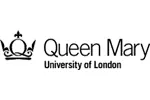We're moving! This site will be relocating to goingto.university in 2026. Please update your bookmarks to the new address.


the United Kingdom
Queen Mary University of London Online (QMUL)| The award | How you will study | Study duration | Course start | Domestic course fees | International course fees |
|---|---|---|---|---|---|
| LLM | Part-time, Online | 2 years | April, September | GBP 10000 total | GBP 10000 total |
| PG Dip | Part-time, Online | 2 years | April, September | GBP 6700 total | GBP 6700 total |
| PG Cert | Part-time, Online | 1 year | April, September | GBP 3350 total | GBP 3350 total |
Be part of a new generation of lawyers that rethink traditional approaches to conflict resolution with QMUL Online’s LLM International Dispute Resolution.
This world-class international dispute resolution programme is offered through QMUL’s School of International Arbitration (SIA) – a global leader in teaching and research in international dispute resolution.
With its in-depth focus on commercial arbitration, the programme will equip you with a detailed understanding of the key legal issues arising from arbitration proceedings.
Supported by an industry-leading teaching team, you’ll join a global community of like-minded students and professionals – allowing you the opportunity to share ideas, discuss and debate current topics, and further expand your knowledge and perspectives.
QMUL Online’s LLM International Dispute Resolution will open up your career to the challenging and exciting world of international arbitration and global casework.
The course is a great fit for your career goals if you’d like to:
Some of the topics you’ll cover during the course are:
The course is offered completely online, with assessments being conducted through coursework and a final dissertation.
To graduate, you’ll need to successfully complete 4 modules and a 20,000-word dissertation.
Our team of industry-leading teaching staff will guide your learnings through:
Find out more about QMUL Online's LLM International Dispute Resolution.
To apply for this course, you should have:
If you’re unsure whether you’re eligible to apply, please contact our course advisors to check your eligibility.
To be eligible for entry to the LLM, PGDip or PGCert International Dispute Resolution programme you should have the following:
Law graduates
Non-law graduates
In all cases, a full online application is required in order for a fair assessment and decision to be made. Each application is considered on its merits and on sight of comprehensive application documents.
A full and detailed CV is required for all applications and is particularly relevant where professional experience needs to be considered.
International applicants
At Queen Mary we are proud of our global community and we have a long history of welcoming students from around the world. Over the years, many thousands of our international graduates have gone on to pursue successful careers.
To be able to make the most of the modules and teaching on offer, and to keep up with the online discussions, all applicants must meet a minimum academic English language standard for admission. You will need to provide evidence of sufficient English language ability in line with our standard English requirements. The IELTS requirement is a 7.0 overall and at least a 7.0 in the writing component. Please check the guideline for English language requirements for further information on the English language levels required, and alternative qualifications for English language proof.
If you have not achieved the required English language level, then you should continue to take English language tests in your country to reach the level needed.
For any questions about the English language requirements or about entry qualifications specific to your country, contact our course advisers who will be happy to help.
Below are some suggested courses at other providers that you may also be interested in:
MSc International Business 4.0 - Leading Green & Digital Transformation MSc
ESSCA School of Management – Online Programs
Find out moreLeading Interprofessional Practice Education PG Cert
University of Derby Online Learning
Find out moreInternational Public Management and Policy Master Degree
Erasmus School of Social and Behavioural Sciences (ESSB), Erasmus University Rotterdam
Find out moreIf you do not meet the entry requirements for this course then consider one of these postgraduate preparation courses from another institution:
Graduate Diploma of Engineering (Electrical Systems)
Engineering Institute of Technology
Find out moreGraduate Diploma of Professional Psychology Practice
Australian College of Applied Psychology (ACAP)
Find out moreThere are 3 other courses listed from Queen Mary University of London Online (QMUL). A selection of these are displayed below:
Global Public Health MSc, PG Dip, PG Cert
Queen Mary University of London Online (QMUL)
Find out moreInternational Dispute Resolution LLM, PG Dip, PG Cert
Queen Mary University of London Online (QMUL)
Find out moreInternational Relations MA, PG Dip, PG Cert
Queen Mary University of London Online (QMUL)
Find out moreJoin the StudyLink email list and never miss a chance to turn your study abroad dreams into reality!
